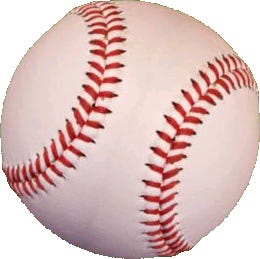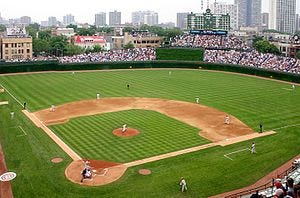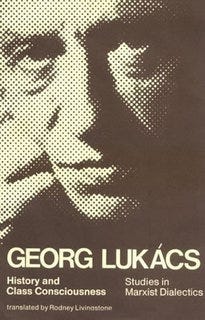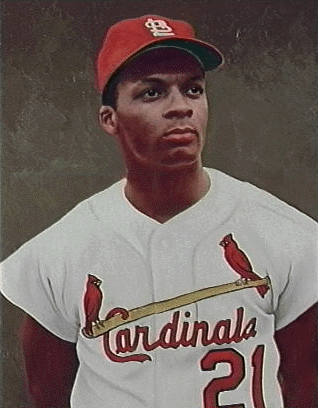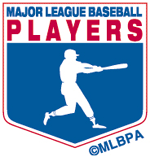Curt Flood, Baseball, and the Advent of Free Agency
Sports have transcended their genesis as simple recreation and have become factories that churn out athletes as commodities. Baseball, that oh so American of sports, is hardly different. In fact, baseball’s ownership laid the foundation on which many of the abuses of the athletes across sports are based. Baseball is an industry. With phenomenal profits and exploitation of its workers, baseball has the mutual antagonism found in every business between the owners and employees. This antagonism boiled over in 1969, after simmering below the surface for almost a century, when Curt Flood sued the Commissioner of Baseball, Bowie Kuhn, for violations of antitrust laws and for denying him the right to free agency. Flood’s suit went to the Supreme Court, where he lost. In losing, Flood managed to prove the preposterousness of the Court’s decision, and by extension, the concept of capitalist law. It is evident, by applying Karl Marx’s theory of industrial capitalism in Capital to baseball and by applying Georg Lukacs’ theories of legality and capitalist law in his essay, “Legality and Illegality”, to the Flood case, that even what is regarded as a harmless pastime and sport has become corrupted and exploited by capitalism. Once baseball undergoes the industrial transformation there is no hope for recourse when the players have a grievance.
It is important to draw distinctions between baseball as a game and as an industry. Baseball, the game, is played across the United States and increasingly around the world. The game involves teamwork, patience and detailed strategy. Those who play baseball use their wits, talents and physical stamina to weather games often lasting over three hours. As a sport, baseball occupies that sphere of society in which traditional class, ethnicity and gender roles are made somewhat trivial beside the aptitude of the player. The game has taken over much of Central and South America and has become incredibly popular in South Korea and Japan. Children playing baseball is a sight seen from the streets of the Dominican Republic to the streets of Seoul. Baseball the industry is far removed from baseball the game, and has more similarities with the production of commodities than with sport.
Once baseball became an industry, it underwent a transformation in which the name “baseball” is only relevant as description of the foundation the industry is built upon. Steve Hamilton, the San Francisco Giants relief pitcher profiled in Studs Terkel’s Working, has quite a bit to say about the transformation of baseball into an industry. Distinct among the subjects he touches on is what Marx terms in Capital as “the specialized worker and his tools,” exemplified by the baseball itself changing its physical makeup, becoming, in Hamilton’s words “hotter. It’s wound tighter and can go further. Anybody can hit a home run now.” The reasoning behind this change in the ball player’s most important tool- the ball- is on the one hand the fan’s desire to see a more exciting game, with home runs aplenty. On the other hand, the ball club’s owners’ desire is to keep the game going longer in the interests of selling more refreshments and gaining more ad revenue from the televised audience. Thus, Marx’s statement that the specialization of the worker and his tools leads to “a decrease in the amount of labor-power unproductively consumed” is borne out. What was before a relatively “unproductive” use of player labor, the far more technical and shorter games before the change in the ball, has now become “productive”, the game being longer, higher scoring, and relying more on the spectacle of the home run than the complex beauty of the duel between pitcher and batter, hitter and fielder. The ease with which the hitter can now launch the ball further is an example of “how to attain the desired effect with the minimum of exertion.” No wonder Hamilton bemoans the fact “there’s not much talk about the craft anymore.”
Capital must expand, and the most clever of the tricks learned by the capitalist is to manipulate the masses to freely give the means of expansion capital out of the collective wealth to the capitalist. This process is seen clearly in the treatment of colonies by the Western European capitalists described by Marx in Capital, forcing the indigenous peoples of the conquered territory to provide the wealth necessary for their exploitation, the process leading to “great fortunes [springing] up like mushrooms in a day.” Similarly, when the ball club owner needs a new stadium, the stadiums come, as described by Dave Zirin in his book, Welcome to the Terrordome, “gift wrapped as an instant solution to the problems of crumbling schools, urban decay, and suburban flight, SportsWorld shrines to the dogma of trickle down economics.” Presented as a sure fire way to reverse any ills of the community, stadiums are the quintessential Trojan Horse- appearing as a gift, but hiding their true cost behind that facade. In reality, the stadiums are a great swindle, a siphoning of public money for a few wealthy individuals whose taxes are written off due to the stadium, and whose profits are directly received from a monolithic structure paid for almost entirely by public money. “Imagine”, Dave Zirin says in What’s My Name, Fool?, “if you wanted to move to a new town and demanded your neighbors build you a home for the privilege of living next to you and you begin to see the insane logic at work.”
In order for baseball to keep their most valuable investments- the players- in line, they rely on what Marx terms as the “industrial reserve army”, a mass of potential workers who are unemployed or semi-employed in the industry and whose presence in the job market helps to suppress the autonomy and assertiveness of those who are employed. If, as Marx asserts in Capital, profit in capitalism depends on the exploitation of the worker, then capitalism must have a check on the worker so he or she does not push for more pay and stake in the wealth he or she creates. The reserve army of labor “puts a curb on [the] pretensions” of the fully employed and “confines the field of action of [the worker’s quest for better pay] to the limits absolutely convenient to capital’s drive to exploit and dominate the workers.” The industrial reserve army is made up of the minor league farm system through which players work to gain access to the means of production, the Major League team, the stadium and all the trappings thereof. Reminiscing on his days in the minor league, Steve Hamilton says, “in the minors, a guy’ll play eight, nine years. He’s getting [paid] really nothing.” Despite the low pay, players stick in the minors, hoping to one day make it big, even once their prime has passed, with “no future at all [because] there’s nothing they’re trained to do.” The presence in the lower leagues of these veterans serves as a reminder to the young players coming up that their time may be fleeting, so the best thing to do is to keep one’s head down and not rock the boat. “Don’t make waves, man. Don’t rock the boat. Just go play, do your job, and be happy, you hear?”
The players are treated as more than labor. Their images and bodies are commodified by the baseball industry. They become commodities with the occasionally exasperating habit of acting outside of the interests of the ball club owners, but commodities still. Commodification of the player is an easy process- once the player reaches the major leagues, he is already tied to a brand, Major League Baseball, and a specific brand within the brand, his team. From there it is a simple and inevitable process that his name, image and jersey number will be used to sell memorabilia, so that the fans can feel they own a piece of him. The player is now simultaneously less and more than the sum of his labor, his playing ability. Less, because the money made from the actual games he plays may pale in the face of the merchandise his name sells; more because it is precisely the quality of his labor, the playing, that has made that merchandise desirable.
The commodification of the athletes is evident in how the owners treat the players, keeping a divide between management and player in order to treat them more like property than people. Hamilton: “they insist on knowing you as a thing. It’s easy for them to manipulate.” The owners also treat the players “as children. This bed check, watching players…. It makes you feel funny.” These methods of control, on the one hand the owners alienating the players and treating them as property and on the other treating them like children, not adults, are designed to commodify the player and curb their impulses for self determination. Even players who understand their exploitation are in a bind, due to the nature of the job. Steve Hamilton puts the quandary as: “You always hated to say anything against the owners because you were made to feel you were lucky to be playing baseball.”
Suppression of the player’s autonomy was never so obvious than it was by use of the Reserve Clause from 1870 to 1976. The Reserve Clause was a contractual obligation stating to the player signing that his service with a team could be indefinitely extended endlessly by one year renewals of that contract by the team that owned the rights to his labor, with or without his permission. The only way a player could leave the team was either to request, hat in hand, a trade to another team, or to hope that the team’s owners would sell his contract. Either way, his fate was out of his hands. The contractual solution to the antagonism between the owners and players was the Reserve Clause. The clause was technically illegal under antitrust laws and made of the player little more than indentured servant. Even the illusory freedom of liberty to work for another capitalist in the field was denied the players. MLB had a monopsony, or as explained by Roger I. Abrams in his Legal Bases: Baseball and the Law, a “labor market dominated by one employer.” The club owners wished to compete on the field of play, but to collude off it through economic cooperation at the expense of the player, who “did not have the prerogative, enjoyed by other workers, to choose” where and for whom he worked. The system had been challenged in 1890 and 1953, but the courts had always ruled in favor of the owners, despite the flagrant abuse of antitrust laws the Reserve System pulled off in its application. As Marx said, and as we will see now as we look at Curt Flood’s futile attempt to gain recourse from the Supreme Court against MLB, “capitalist justice is truly to be wondered at.” No scholar of political economy has understood the dementia of the capitalist system of law better since than Georg Lukacs. Before applying Lukacs’ theory we must provide background to Curt Flood.
Curt Flood was a multiple All Star player who played for the Cardinals for most of his career. An African American born in Houston, Texas, in 1938, he grew up in Oakland California and played baseball in his adult life, entering the Major Leagues in 1961. After eight years of outstanding play, he made the error of speaking out publicly against his team’s management in 1969, when the team began restructuring before the season was over due to a particularly bad competitive showing for the year. Perhaps because of this insubordination, the Cardinals traded him shortly after the end of the ’69 season, to the struggling Philadelphia Phillies. Flood strongly objected to this trade, mainly for two reasons, first, he believed the team was terrible, and, second, having played in Philadelphia, he had experienced racism from the fans in the stands. Flood believed that he had the Constitutional right, though contractually denied in MLB, of choosing his employer. Flood sent a letter to Bowie Kuhn, the then Commissioner of Baseball, suing for free agency, the freedom to sell his services to whichever team would hire him. The letter read, in part, “After twelve years in the major leagues, I do not feel I am a piece of property to be bought and sold irrespective of my wishes. I believe that any system which produces that result violates my basic rights as a citizen and is inconsistent with the laws of the United States and of the several States.”
Flood was trying to effect change, but he had miscalculated the breadth of that which he wished to change. On the face of it, the inconsistency of the specific law restricting him to the parameters of the Reserve Clause was the problem and not, as Lukacs would have explained, the entire system the Reserve Clause was a part of. Flood was engaged in an act of what Lukacs terms “opportunism”, the seeking of redress for injustice strictly within the framework of the state or the law. Flood’s request to Kuhn is an example of opportunism in that it presupposes that the rules of the state can be revised. Thus there is no need to combat the state itself; rather the need is to gain control of the law and bend it to one’s will. Lukacs notes that the concept of changing the application of the law to be more evenhanded is a flawed notion, because the law’s “validity…[is] accepted as unproblematic” and as such no true change can take place. For Lukacs, the entire structure the law is based on and around is itself so defective that urging change within its boundaries is delusional. Flood’s case was an example of acting in opposition to the system while still endorsing its validity.
Flood’s case reached the Supreme Court in 1972, where the Court decided against him in one of the most incomprehensible rulings in US history, proving Lukacs right in his assertion that “laws [should] be seen as having no more than an empirical validity” at best. The Court’s decision, rendered by Justice Harry Blackmun, affirmed two previous rulings, Federal Baseball v. Major League Baseball and Toolson v. New York Yankees. The two decisions set precedent for the exemption of baseball from the antitrust laws regulating interstate commerce on the basis that baseball was an amusement and not a business. Blackmun’s decision is a study in hilarity, as he admits that baseball is indeed a business, which is involved in interstate commerce, and that its exemption from these laws was an aberration. Blackmun went further, quoting the Toolson decision upholding the Federal Baseball decision, which had first exempted baseball from antitrust law, “more harm would be done in overruling Federal Baseball than in upholding a ruling [in a lower circuit court striking that ruling down] of dubious validity.” In other words, because Federal Baseball had exempted baseball from antitrust law, and because Toolson had refused to overturn that decision, then there was a precedent for allowing the monopsony to continue. Blackmun concluded his decision with the admissions that, “1. Professional baseball is a business, and it is engaged in interstate commerce. 2. With its reserve system enjoying exemption from the federal antitrust laws, base ball is… an exception and an anomaly….. 3. Even though others might regard this as ‘unrealistic, inconsistent, or illogical…the aberration is an established one.” Thus the Court managed to simultaneously affirm everything Flood said and tell him he was nevertheless wrong. It is apparent that the concept of legality is a shroud over what is actually there, and what is needed is to change one’s perception from “‘true’ reality to the ‘false’ reality of what actually exists” and expose perceived truth for the lie it is.
To fully understand the extent of Lukacs’ theory of legality as applied here, it is essential to understand how free agency was finally won by the players. A quick summation will do. Andy Messersmith of the Los Angeles Dodgers and the Dodgers’ owner could not agree on a salary for the 1975 season. The Dodgers simply renewed Messersmith’s contract, with a minor increase in pay. Messersmith took his case to arbitration, claiming that the Reserve Clause, by saying that the contract could be renewed for one year, was only applicable to one year and was not the indefinite extensions of contracts the management had interpreted it to be for many years. The arbitrator was Peter Seitz, and he ruled in favor of Messersmith, stating Messersmith now had the right to seek employment with any team that he wished. The Reserve Clause was ended, and the floodgates were opened. Salaries jumped immediately as players sold their services to the highest bidder.
The players had won a Phyrric victory. The monopsony is still in effect. Players are still incredibly limited in who they can work for. True, they can now play for whatever team will have them, but this is somewhat beside the point given the fact that MLB is still the playing field in which they compete. The owners still have an enormous amount of power over the players and, although the Players Union is perhaps the strongest union in the country, it still has to contend with an amalgamated body that regulates and profits from every action on the diamond.
Lukacs contends that without razing the system in which injustice occurs, the victim only changes the superficial nature of the structure, while the core remains intact, and this is exactly what has happened with baseball. In order for the players to achieve free agency, a “naive…concession” was made from the players to the owners. This concession was their acceptance of the rules and structure in which the arbitration would take place and their acceptance of the validity of the power relation between owner and player. The players effected change within the narrow confines of their contracts, but their deprivation “of the practice… of acting independently” within the power relation incapacitated their ability to take their struggle much further, to press, for example, for player owned teams and equal distribution of profits. While they achieved their short term goal, the players are still stuck in a situation in which they, “inwardly still acknowledge the [system of owner dominance within baseball] as the only authentic and legal [system],” through which they can remedy their grievances. The owners are beaten, but not defeated; “accustomed.. to the enjoyment of privileges and the exercise of power..[they] will never resign [themselves to a more equitable system without a fight] merely because of a single defeat.” Thus their profiteering will continue, by any way possible, be it by overcharging for refreshments in drawn out games or from stadium swindles. The system, left in place, evolves and finds a way around any hindrance in the quest for profit, and its legal validity is intact despite the defeat suffered.
Baseball is a game in its original form, before being corrupted and debased by the touch of capital and made a factory for the commodification of exercise and entertainment. Since baseball became an industry, the distinction between the sport and the business has been obscured to the point that they are, on the professional level, indistinguishable. Whether the evidence is found in technical innovations in the tools of the worker, in the colonization of public land for monstrosities of profit, or in the exploitation of the players/workers whose labor provides the basis for the entire enterprise, the conclusion is indisputable and obvious: baseball has become an industry, wrenched from its roots of play and commodified into big business.
Marx’s analysis of industrial capitalism applied to today’s baseball offers us a way of understanding the bitter truth beneath the appearance of pastime and Americana and shows us the reality of a business devoted to the bottom line and exploitation, no different than any other sector in the capitalist market. Lukacs’ Marxian analysis of the insanity and instability of capitalist law and the flawed perception of legality enables us to understand the struggles of the players to assert their independence and gain nominal rights truly changed nothing about the power dynamic that benefits the owners at the players’ expense.
Works Cited
Abrams, Roger I. Legal Bases: Baseball and the Law. Philadelphia: Temple University Press, 1998
Flood v. Kuhn. №71–32. Supreme Ct. of the US. 19 June 1972
Lukacs, Georg. History and Class Consciousness: Studies in Marxist Dialectics. Trans. Rodney Livingstone. Cambridge: The MIT Press, 1971
Marx, Karl. Capital, Volume One. Trans. Ben Fowkes. New York: Vintage Books Edition, 1977
Terkel, Studs. Working. New York: Ballantines Books, 1985
Zirin, Dave. Welcome to the Terrordome. Chicago: Haymarket Books, 2007
Zirin, Dave. What’s My Name, Fool?. Chicago: Haymarket Books, 2005




